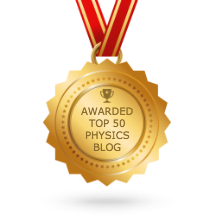Suppose you are a physicist, mathematician, or engineer who wants to change your research direction toward biology and medicine. How do you learn biology? Let’s assume you don’t quit your day job, so you have limited time. Here are my suggestions.
 |
Machinery of Life,
by David Goodsell. |
Read The Machinery of Life (2nd edition), by David Goodsell. I discussed this book a few weeks ago in this blog. It’s visual, easy to read, not too long, cheap, and doesn’t get bogged down in details. It’s a great introduction; this is where I would start.
- If you haven’t had an introductory biology class, you might consider taking this online biology class from MIT. It’s free, it has homework assignments and quizzes so you can assess your learning, and you can work at your own schedule. For those who prefer an online class to reading a book, this is the thing to do.
- If you would prefer reading an introductory biology textbook, a popular one is Campbell Biology by Reece et al., now in its 10th edition. The MIT online course mentioned above and the introductory biology classes here at Oakland University use this book. Its advantages are that it covers all of biology and it is written for introductory students. Its disadvantages are that it is expensive and long. I am not an expert on the different intro biology textbooks; there may be others just as good.
 |
The Eighth Day of Creation,
by Horace Freeland Judson. |
I like to learn a subject by studying its history. If you want to try this, I suggest: The Double Helix by James Watson (of Watson and Crick) and The Eighth Day of Creation by Horace Freeland Judson. Watson’s book is a classic: a first-person account the discovery of the structure of DNA. It is well written, controversial, and should be read by anyone interested in science. Judson’s book is longer and more comprehensive; a fantastic book.
- The textbook Physical Biology of the Cell by Phillips et al. was written by physicists trying to learn biology. Also from a physicist’s point of view are Biological Physics and Physical Models of Living Systems, both by Philip Nelson. These books don’t cover all of biology, but a physicist may like them.
- I learned a lot of biology in high school reading Isaac Asimov books. They often take a historical approach, and are qualitative, interesting, clearly written, fairly short, and cheap. I worry about recommending them because biology has progressed so much over the last few decades that these books from the 1960s are out-of-date. However, I suspect they are still useful introductions, and I suggest The Wellsprings of Life, The Genetic Code, The Human Body, The Human Brain, and A Short History of Biology.
- Some books from my ideal bookshelf cover parts of biology from the point of view of a physicist: Air and Water by Mark Denny, Scaling: Why is Animal Size so Important? by Knut Schmidt-Nielsen, and Random Walks in Biology by Howard Berg. Steven Vogel has many books you might like, including Life in Moving Fluids, Vital Circuits, and Life’s Devices.
- Nothing in biology makes sense except in light of evolution. To learn about evolution, read the books of Stephen Jay Gould. I enjoyed his collections of essays from the magazine Natural History. Start with Ever Since Darwin.
 |
Textbook of Medical Physiology,
by Guyton and Hall. |
- Once you have a general biology background, what comes next? When I was in graduate school, I sat in on the Vanderbilt Medical School’s Physiology class and their Biochemistry class. These are the two courses that I encourage Oakland University Medical Physics graduate students to take. Typical textbooks are Guyton and Hall’s Textbook of Medical Physiology, now in its 13th edition, and Nelson and Cox's Lehninger Principles of Biochemistry, now in its 6th edition. Both books are long, expensive, and detailed.
If interested in cell and molecular biology, a leading text is Molecular Biology of the Cell by Bruce Alberts and Alexander Johnson.
- If you have the time, you can do what Russ Hobbie did: between 1971 and 1973 he audited all the courses medical students take in their first two years at the University of Minnesota. Finally, you can always purchase a copy of the 5th edition of Intermediate Physics for Medicine and Biology!
If readers of the blog have their own recommendations, please add them in the comments.






This is an excellent list (though perhaps daunting in its size). I especially agree that the recent texts by Phillips & co. and Nelson are great, as are Berg's and Vogel's books. I think the suggestion of reading a biology textbook is very good, since, more than anything else, it gives an exposure to the enormity of phenomena and terminology that modern biology encompasses. When diving into biophysics as a postdoc, I read the entirety of Alberts et al, “Molecular Biology of the Cell,” typically in 20 minute chunks while eating lunch. (It took many months to slog through it.)
ReplyDeleteThis reminds me that I should update my own blog list of suggested readings to include Phil Nelson’s new book, and MBoC! (https://eighteenthelephant.wordpress.com/2013/10/31/readings-in-biophysics-part-i/)
ReplyDeleteThanks for sharing such a nice blog with full information, we are looking forward to see more blogs in future. Here you can get some unique backyard ideas for learning biology & also you can strong your general knowledge with this free online test series app.